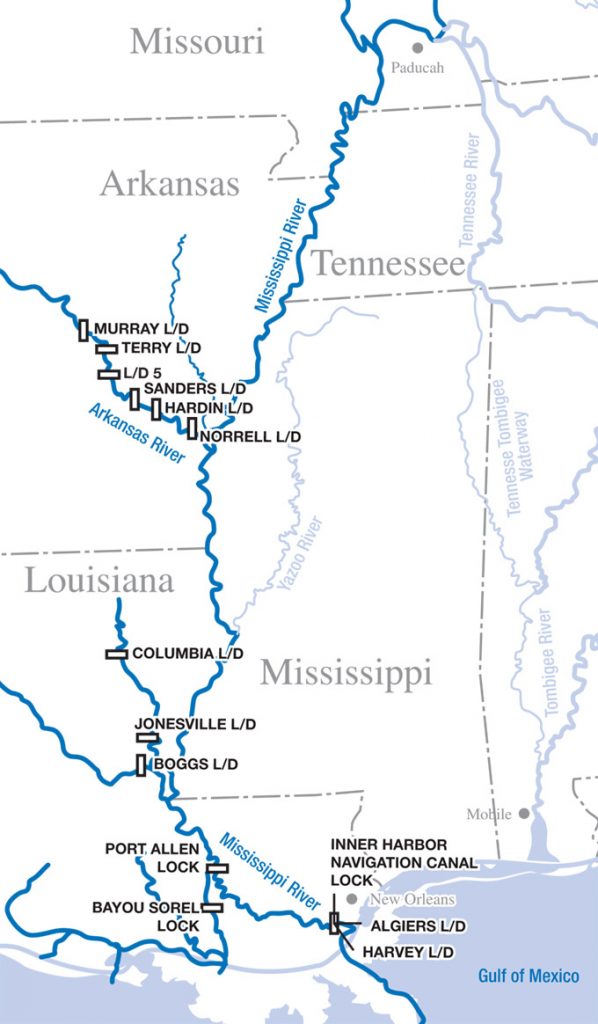This is one of the world’s most intensely regulated rivers and said to be “not well suited to pleasure craft, fishing or swimming.” The flood control and navigation maps show the twisting, curving, looping channel. You can see across 180-degree bends that take 20 miles to reach. The river distance from Cape Girardeau, Mo., to the Gulf is twice the actual distance.
There are miles of expansive floodplains of sand, mudflats, trees and willows. One description labels it “just sand, mud and trees.” The channel is 9 feet deep to Baton Rouge and then is 40 feet.
The Mississippi Delta that begins below Memphis was created by the sediment washed down. It becomes a mix of solid and liquid, fresh and saltwater and constantly shifting bayous.
Outside of the major cities, there are few towns and few landings and facilities for anything other than the enormous tows. Some tows push more than 50 barges, produce over 10,000 horsepower and hold up to 200,000 gallons of fuel. Maneuvering around the tight bends and dealing with the river conditions are constant challenges.
Perhaps the biggest problems for recreational boaters are lack of fuel, places to stop and safe anchorages. Gas is available at Hoppies just below St. Louis, then it’s 377 miles to Memphis and another 198 miles to Greenville, Miss. The last leg is 440 miles to the Gulf Intracoastal Waterway.
The maps show the incredible number of water control structures. There are miles of revetments and submerged weir dikes that radiate out from outside bends. Almost 1,600 miles of levees line its 954-mile length.
Boils and eddies are two dangerous water features. Boils can look deceptively calm, despite their mushroom-shaped caps that are created when deep running water is forced up. Hitting the edge of a boil can be like “driving a car onto an icy patch.”
Eddies are a bigger problem. These are large whorls of water flowing against the current, frequently on bends, which create turbulence like a washing machine. One above Baton Rouge has turned entire tows around. One tow pilot says, “Boils ain’t no problem, but eddies you got to watch.”
The powerful Lower Mississippi changes from day to day and season to season. It deserves a mariner’s greatest respect.

